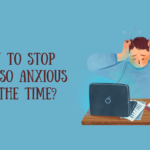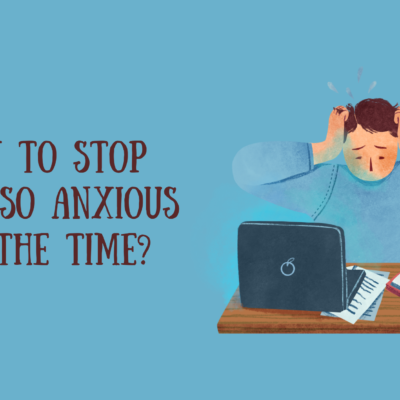How to Relief from Mental Stress?
How to Relief from Mental Stress: Mental stress has become an unavoidable part of modern life. Whether it’s work pressure, financial concerns, relationship issues, or simply the fast-paced lifestyle, stress can take a serious toll on your mind and body. While some stress is normal and even helpful in keeping you motivated, chronic stress can lead to anxiety, depression, and health problems.
The good news? You don’t have to let stress control your life. With the right techniques and lifestyle changes, you can reduce mental stress and achieve a calmer, more balanced mind.
In this article, we’ll explore effective strategies to relieve mental stress and regain control over your well-being.
Also Read:
- How to Deal with trust issues in new relationship after being cheated on?
- How to Live Your Life to the Fullest?
Understanding Mental Stress: What Causes It?
Mental stress occurs when your mind perceives a situation as overwhelming or beyond your control. This triggers the body’s “fight-or-flight” response, leading to increased heart rate, muscle tension, and the release of stress hormones like cortisol.
Some common causes of mental stress include:
- Work pressure – Tight deadlines, long hours, or job insecurity
- Financial worries – Bills, debts, or financial instability
- Relationship issues – Conflicts with family, friends, or a partner
- Health concerns – Illness, injuries, or caring for a loved one
- Overthinking and negative thoughts – Dwelling on the past or worrying about the future
- Social pressure – Expectations from society, peers, or social media
Understanding the root cause of your stress is the first step toward managing it effectively.
1. Practice Deep Breathing to Calm Your Mind
One of the simplest and most effective ways to relieve stress is through deep breathing. When you’re stressed, your breathing becomes shallow, making you feel even more anxious. Deep breathing helps activate your body’s relaxation response.
Try the 4-7-8 Breathing Technique:
- Inhale deeply through your nose for 4 seconds.
- Hold your breath for 7 seconds.
- Exhale slowly through your mouth for 8 seconds.
- Repeat this cycle for a few minutes.
This technique helps lower heart rate, reduce anxiety, and bring a sense of calmness.
2. Engage in Physical Activity
Exercise is a powerful stress reliever. When you engage in physical activity, your body releases endorphins—natural mood boosters that reduce stress and make you feel happier.
- Go for a walk – Even a 20-minute walk in nature can clear your mind.
- Try yoga or stretching – It helps relax muscles and improve flexibility.
- Dance to your favorite music – A fun way to lift your mood instantly.
- Strength training or cardio – Boosts overall mental and physical health.
Regular exercise not only reduces stress but also improves sleep and boosts self-confidence.
3. Practice Mindfulness and Meditation
Mindfulness is the practice of focusing on the present moment without judgment. When you’re mindful, you stop overthinking about the past or worrying about the future—two major sources of stress.
How to Practice Mindfulness?
- Focus on your breath – Pay attention to each inhale and exhale.
- Engage your senses – Observe what you see, hear, and feel in the moment.
- Accept thoughts without judgment – If a stressful thought arises, acknowledge it and let it pass without overanalyzing.
Meditation, even for just 10 minutes a day, can significantly reduce stress levels and improve mental clarity.
4. Maintain a Healthy Diet
What you eat affects how you feel. A poor diet can worsen stress and anxiety, while a healthy diet can boost your mood and energy levels.
Foods That Help Reduce Stress:
- Avocados – Rich in healthy fats that support brain function
- Dark chocolate – Contains antioxidants that help reduce stress hormones
- Citrus fruits – High in Vitamin C, which lowers cortisol levels
- Nuts and seeds – Packed with magnesium, which helps relax the nervous system
- Fatty fish – Omega-3 fatty acids help reduce anxiety
Avoid excessive caffeine, sugar, and processed foods, as they can lead to energy crashes and increased stress.
5. Get Enough Sleep
Lack of sleep can make stress worse, leading to irritability, poor concentration, and increased anxiety. Adults need seven to nine hours of sleep per night for optimal brain function.
Tips for Better Sleep:
- Stick to a schedule – Sleep and wake up at the same time daily.
- Limit screen time – Avoid phones and laptops 30 minutes before bed.
- Reduce caffeine intake – Especially in the afternoon and evening.
- Create a relaxing bedtime routine – Read a book, listen to calming music, or practice deep breathing.
Prioritizing sleep can dramatically improve your ability to handle stress.
6. Reduce Social Media and Digital Overload
Constant notifications, negative news, and social media comparisons can increase stress levels. Too much screen time overstimulates the brain, making it harder to relax.
How to Reduce Digital Stress?
- Set screen time limits – Use apps that track and reduce phone usage.
- Unfollow negative content – Avoid news or accounts that trigger stress.
- Take social media breaks – A digital detox can refresh your mind.
- Engage in real-world activities – Spend time with friends, read books, or go outside.
Less screen time means a more peaceful and stress-free mind.
7. Talk About Your Feelings
Bottling up emotions only increases stress. Talking about your worries with a trusted friend, family member, or therapist can help release emotional tension.
- Share your thoughts openly – Talking can provide clarity and new perspectives.
- Write in a journal – Expressing emotions through writing helps process feelings.
- Join a support group – Connecting with others facing similar challenges can be reassuring.
Opening up about stress can lighten the mental burden and help you find solutions.
8. Manage Your Time Wisely
Poor time management can lead to feeling overwhelmed and stressed. Learning how to prioritize tasks can reduce mental pressure.
Time Management Tips:
- Make a to-do list – Write down daily tasks to stay organized.
- Prioritize important work – Focus on high-impact tasks first.
- Take breaks – Short breaks improve productivity and reduce burnout.
- Learn to say no – Don’t overcommit to things that drain your energy.
A well-organized schedule leads to less last-minute stress.
9. Engage in Hobbies and Relaxation Activities
Doing things you love can be a great way to unwind and relieve stress.
- Creative activities – Painting, writing, or playing music can be therapeutic.
- Reading – A good book can transport you away from daily stress.
- Gardening – Spending time with plants can be soothing.
- Spending time in nature – A walk in the park or by the beach can boost your mood.
Finding time for hobbies can bring joy and relaxation into your life.
10. Seek Professional Help When Needed
If stress is becoming too overwhelming, don’t hesitate to seek professional help. Therapists, counselors, and mental health professionals can provide effective coping strategies.
Signs You May Need Help:
- Feeling constantly overwhelmed or hopeless
- Struggling with daily tasks due to stress
- Frequent anxiety or panic attacks
- Difficulty sleeping or eating properly
Seeking help is a sign of strength, not weakness. Mental health is just as important as physical health.
Final Thoughts: A Balanced Life = Less Stress
Reducing mental stress is all about finding balance in your daily routine. Instead of trying to eliminate stress completely, focus on managing it effectively through:
- Deep breathing and mindfulness
- Physical activity and healthy eating
- Digital detox and good sleep habits
- Expressing emotions and prioritizing self-care
By making small, consistent changes, you can build resilience and create a calmer, healthier life.
Start today—your peace of mind is worth it.



